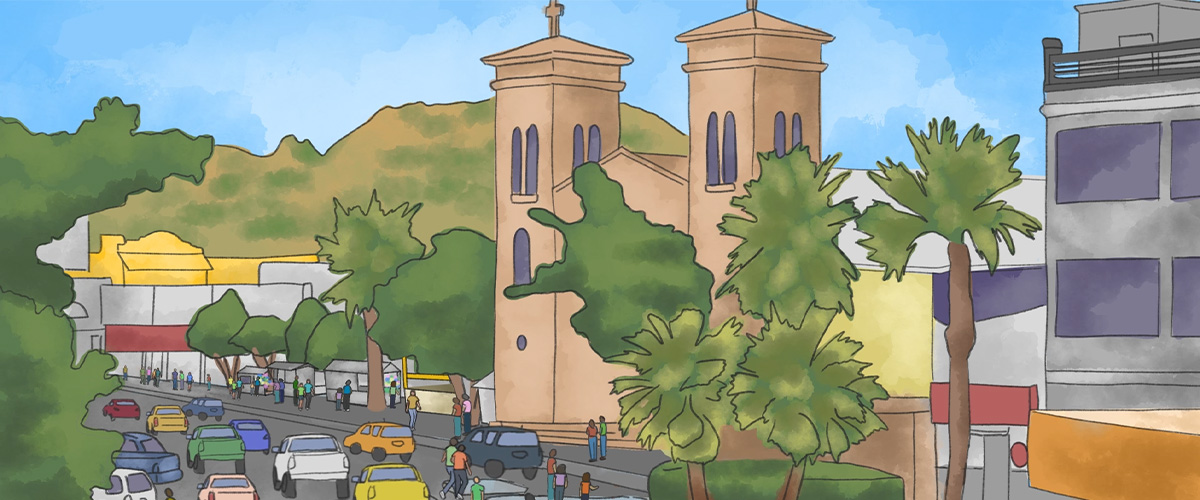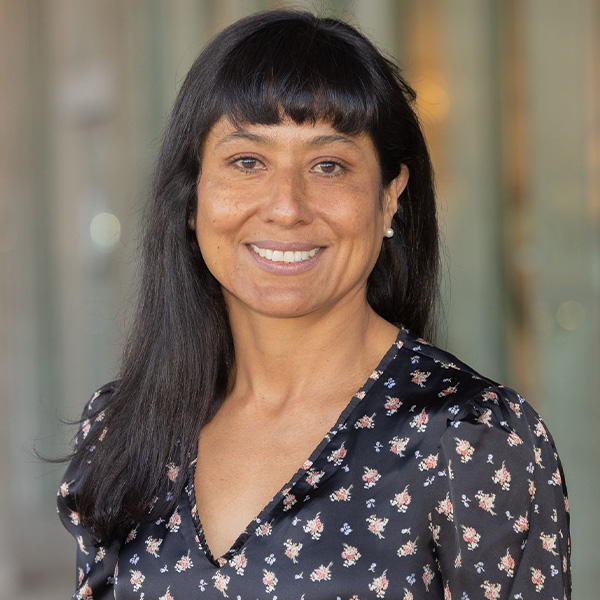Dr. Denise Moreno Ramírez, UArizona Leader in Environmental Justice Research, Featured at the SXSW Festival

Public health postdoc Dr. Denise Moreno Ramírez, a leader in environmental justice who applies community-engaged research to investigate environmental contamination, will soon be the focus of a new documentary and will be featured by the University of Arizona at the South by Southwest Festival in Austin, TX.
Denise Moreno Ramírez, PhD, MS, has been involved in diverse community-engaged research projects at the University of Arizona for twenty years. Now, as a T32 Postdoctoral Research Associate with the Center for Toxicology and the Mel and Enid Zuckerman College of Public Health (MEZCOPH), Dr. Moreno Ramirez’s unique approach to environmental justice – doing participatory science with close community collaboration throughout every stage of the research process – is being recognized as groundbreaking work.
"I'm passionate about connecting science with the community’s knowledge and co-learning from individuals as we develop the research project so they can advocate for environmental justice and healthier lives in their own community,” says Dr. Ramírez, “I like that the discipline of public health sees the unique value in the community-engaged research approach."
A new documentary film by Landmark Stories is in production that explores Denise’s experience as an environmental justice community member and her work to preserve the oral histories of individuals confronted with groundwater contamination in the community of South Tucson. The film’s Senior Producer, Sandra Westdahl, and Creative Designer, Elena Lopez, joined Denise in a panel discussion about helicopter science and the responsibilities of both scientists and filmmakers when entering environmental justice spaces at the University of Arizona’s Wonder House installation at the South by Southwest (SXSW) festival in Austin, Texas. You can see watch the presentation here.
A University of Arizona alumna, Denise grew up in the border town of Ambos Nogales, 45 minutes south of Tucson, and first came to the university as a research specialist after earning her undergraduate degree from Northern Arizona University. She worked in the Mexican portion of the San Pedro River Basin, where she partnered with community members, mining engineers, rural farmers, and conservation scientists on a project focused on binational water resources. She went on to earn her Master of Science in Watershed Management from the UArizona School of Natural Resources and the Environment, and then her PhD in Soil, Water, and Environmental Science from the UArizona Department of Environmental Science, with a minor in Medical Anthropology from the School of Anthropology in 2020.
In the early 1980s, high levels of a cancer-causing solvent called trichloroethylene, or TCE, were found in the groundwater in south Tucson. For decades, community members fought for official recognition of the health impacts, and to get the TCE plume cleaned up. Denise worked with the community in South Tucson giving a human face to the science and supporting their fight for environmental justice. Through a community-engaged process, she recorded and analyzed people's experiences of the impacts of contamination, the local knowledge embedded in personal histories, and the community’s advocacy efforts using a qualitative approach.
In her dissertation, Voices of Sacrifice Zones: Oral History and Community- Engaged Research in Two Arizona Superfund Sites, Dr. Moreno Ramírez established a community-based oral history project that preserved the personal histories of 22 individuals living and working near two Superfund sites in Arizona, a process that also connected the gaps in the scientific data to the local observations (empirical) of the people affected. Her project culminated in a digital archive, Voices Unheard: Arizona’s Environmental History.
Recently Dr. Ramírez was selected as a UArizona Presidential Postodoctoral fellow and she will soon join the Department of Community, Environment and Policy. Currently Denise works with Dr. Paloma Beamer on a public health research project called El Trabajo no te Debe Dañar (work should not hurt you): Reduction of Hazardous Exposures in Small Businesses through a Community Health Worker Intervention. The project, funded by the National Institute of Environmental Health Sciences (NIEHS), focuses on understanding how volatile organic compounds interact in workplace air and impact low-wage, minority workers in small business beauty salons and auto shops in Tucson, Arizona. As a Postdoctoral Fellow funded by a NIEHS Training Grant in Environmental Toxicology, Denise concentrates on strengthening and expanding her skills in exposure science, biostatistical modeling, and qualitative methods. In 2008, she was one of the original UArizona investigators that established the precursor to this project (citation).
Last year, Dr. Moreno Ramírez was also accepted as a Fellow in the 2022-2023 Agents of Change in Environmental Justice program, administered through the Department of Environmental Health Sciences, Mailman School of Public Health at Columbia University. This prestigious program works to empower emerging leaders from historically excluded backgrounds in science and academia to reimagine solutions for a just and healthy planet. The Agents of Change fellows push for systemic change by integrating the best available science and technology with the intergenerational knowledge of communities that have been disproportionately harmed by environmental degradation. This has been a great opportunity for Denise to connect with other emerging Environmental Justice Scholars nationally that are doing similar work. She will be publishing a personal essay and two podcasts focused on beauty justice with Environmental Health News.
All of us in the Zuckerman College of Public health congratulate Denise on this new recognition and visibility for her work! Her community-engaged research method empowers individuals from environmental justice communities to lead for positive change, a proven public health approach. She is finding new ways to connect people with data so that the knowledge we gain from scientific research can result in policies and programs that improve health and well-being in communities like the one where she grew up.


